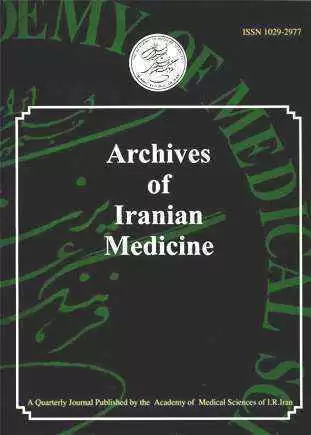Celiac.com 04/13/2015 - Celiac disease is associated complications in the small bowel, but also with problems outside the GI tract. Celiac disease affects small bowel mucosal immunity via exposure to infectious agents; therefore, it is likely that patients with untreated celiac disease are more susceptible to infectious diseases. It is possible that sensitivity to gluten increases in patients with infectious diseases, and that infection may consequently trigger celiac disease in susceptible individuals.
 A team of researchers recently conducted a review of medical literature to determine if infectious mediators may stimulate an immune reaction and act as a trigger factor for celiac disease in susceptible individuals. The research team included Mohammad Rostami-Nejad PhD, Sauid Ishaq FRCP, David Al Dulaimi MD, Mohammad Reza Zali MD FACG AGAF, and Kamran Rostami MD PhD.
A team of researchers recently conducted a review of medical literature to determine if infectious mediators may stimulate an immune reaction and act as a trigger factor for celiac disease in susceptible individuals. The research team included Mohammad Rostami-Nejad PhD, Sauid Ishaq FRCP, David Al Dulaimi MD, Mohammad Reza Zali MD FACG AGAF, and Kamran Rostami MD PhD.
Celiac.com Sponsor (A12):
For their study, they searched PubMed, Medline, Google scholar, SID, and Magiran for full text articles published between 1999 and 2014 in Persian and English. Using associated keywords, they searched for and selected papers which described the impact of infectious agents on celiac disease.
Various studies show that the intestinal microbiota of celiac disease patients show variations in the diversity and abundance of different cultivable bacterial species, which might be a result of celiac disease pathogenesis.
Celiac disease results from the interplay of environmental factors, such as gluten intake, infectious agents, and intestinal microbiota, and immunologic factors. Among environmental factors, infectious agents and intestinal microbiota have been implicated; however, the main factors underlying this connection are not well understood.
The following reasons may account for this: 1) Intraepithelial migration of infectious agents are associated with their motility and virulence, 2) adhesion interaction between human intercellular adhesion molecule 1 (ICAM-1) and the parasite MIC2, and therefore immune precipitation, could be accrued, 3) pathogenic microbiota may attack the intestinal epithelial cells and affect epithelial binding proteins (tight-junctions), as a result of which the permeability of the intestinal wall of the host will be increased.
Understanding the correlation between infectious agents and autoimmune disorders may provide insight into the disease mechanism. In addition, it may enable the development of potential therapeutic targets to combat this common genetic disorder.
Differences in the bacterial communities in children and adults with celiac patients have been reported in some studies (Table 2).44–53 Also, the population of bacteria in treated and untreated celiac disease patients is different according to the diagnosis in adults. Some studies suggest that the microbial communities of treated celiac patients might be similar to the known microbial communities of healthy adults.
According to these studies, more investigations are required to assess the importance of some of these bacteria for celiac disease patients, such as the unknown bacterium not detected in treated and untreated celiac disease patients, and the role of the microbiota in healthy individuals. Also, infectious mediators may stimulate an immune reaction and act as a trigger factor for celiac disease in susceptible individuals.
Stay tuned for further revelations concerning the impact of celiac disease on gut microbiota, including news on how a gluten-free diet impacts the gut flora of people with celiac disease.
Source:
Rostami-Nejad M, Ishaq S, Al Dulaimi D, Zali MR, Rostami K. The Role of Infectious Mediators and Gut Microbiome in the Pathogenesis of
Celiac Disease. Arch Iran Med. 2015; 18(4): 244 – 249.







Recommended Comments
There are no comments to display.